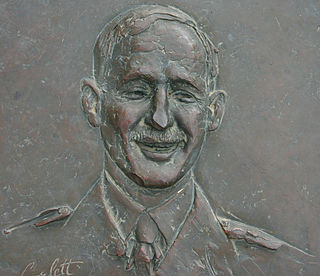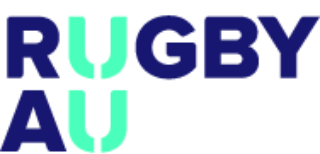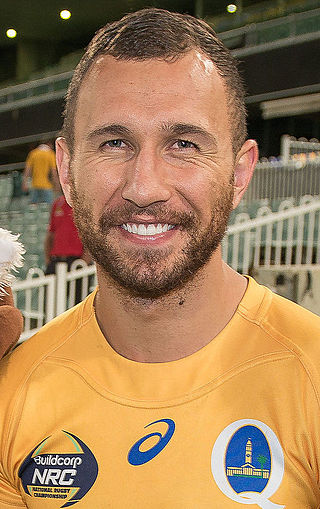Related Research Articles

Colonel Sir Ernest Edward "Weary" Dunlop, was an Australian surgeon who was renowned for his leadership while being held prisoner by the Japanese during the Second World War.

The Australia men's national rugby union team, nicknamed the Wallabies, is the representative men's national team in the sport of rugby union for the nation of Australia. The team first played at Sydney in 1899, winning their first test match against the touring British Isles team.

Rugby Australia Ltd, previously named Australian Rugby Union Limited and Australian Rugby Football Union Limited, is an Australian company operating the premier rugby union competition in Australia and teams. It has its origins in 1949. It is a member of World Rugby. Rugby Australia has eight member unions, representing each state and the Northern Territory and Australian Capital Territory. It also manages national representative rugby union teams, including the Wallabies and the Wallaroos.

Allan Jeffrey "Alfie" Langer AM is an Australian former multi-award-winning rugby league footballer who played in the 1980s, 1990s and 2000s and worked as an assistant coach for the Australian national team, the Queensland Maroons and the Brisbane Broncos.
John Anthony Eales is an Australian former rugby union player and the most successful captain in the history of Australian rugby. In 1999, he became one of the first players to win multiple Rugby World Cups.

Berrick Steven Barnes is a former Australian professional rugby union footballer. His usual position is fly-half or inside centre. He is previously played with Japanese Top League clubs Panasonic Wild Knights and the Ricoh Black Rams, as well as in the Super Rugby competition with the NSW Waratahs and Queensland Reds. He also played for the Wallabies in international matches.

Dr Mark Edward Loane AM FRANZCO FRACS is an Australian ophthalmic surgeon and former rugby union player. He completed medical school and trained as an ophthalmologist in Queensland, where he continues to practice in both the public and private health systems. Loane was proclaimed Member of the Order of Australia in 2011 for his service to medicine, particularly Indigenous eye health.
The McLean family were an Australian rugby clan who between them played 77 Tests for the Australian national rugby union team and a number of Tests for the Australian national rugby league team.

Quade Santini Cooper is a professional rugby union player and occasional boxer. Although born in New Zealand, he has represented Australia in rugby at international level. He currently plays for Hanazono Liners in Japan, and is a former player for the Queensland Reds and the Melbourne Rebels in the Super Rugby competition in Australia. His preferred position is fly-half.

Sanchez William Genia is a professional rugby union player, currently playing scrum-half for the Kintetsu Liners in Japan. He had previously played Super Rugby for the Queensland Reds (2007–2015) and Melbourne Rebels (2018–2019). He also had previously played for Stade Français in France's Top 14 from 2015 to 2017.

Rob Simmons is an Australian rugby union footballer. He currently plays for Clermont in the Top 14 in France and represented Australia in international fixtures. His position is lock, but he can also play in the backrow.
Paul Darveniza was an Australian rugby union player who played as a hooker. He played four tests for the Wallabies in 1968–1969. During the 1971 South Africa rugby union tour of Australia he was one of seven Wallabies players who refused to play the whites-only South African Springboks team and voiced their opposition to the continuation of sporting ties with apartheid-based South Africa. After his sporting career Darveniza served as a consultant neurologist at St Vincents Hospital, Darlinghurst for more than 50 years.

Michael Kent Hooper is an Australian former professional rugby union player who is the former captain of the Australia national team, the Wallabies. His primary position is openside flanker.
Australia and Fiji have played each other twenty-three times, of which Australia has won the most with nineteen, including three at the Rugby World Cup's (RWC) of 2007, 2015 and 2019. Fiji won two of the first four matches between the two teams, however, did not beat Australia again until 2023, at the 2023 Rugby World Cup.
Paul Edward McLean, MBE is an Australian former rugby union player. He played rugby for Queensland and Australia in the 1970s and 1980s, He is a former president of the Queensland Rugby Union, Australian Rugby Union, and an inductee into the Australian Rugby Union Hall of Fame. From 2009 to 2015 he was chief executive officer for Savills, overseeing the Australasian operations of the multinational real estate services provider.

Jordan Petaia is an Australian rugby professional player currently playing for the Queensland Reds in the Super Rugby and for Australia in international matches. A utility back, Petaia is most often used in the centres for both club and country.
Robert Ian Templeton was an Australian rugby union coach who led the Wallabies in 29 Test matches during the 1970s and 1980s. He also coached Queensland in 233 matches.
Shane Stephen Sullivan is an Australian former international rugby union player.
Owen Fairclough Edwards was an Australian international rugby union player.
References
- 1 2 "Ken Donald (Australia)". ESPN . Retrieved 24 June 2023.
- 1 2 3 4 5 6 7 8 9 10 11 "Dr Ken Donald AO (Class of 1955)". IGS Old Boys. Ipswich Grammar School Old Boys' Association. 18 May 2020. Retrieved 25 June 2023.
- 1 2 3 "South Burnett Australia Day ambassador announced". South Burnett Council News. South Burnett Regional Council. 9 January 2020. Retrieved 25 June 2023.
- 1 2 3 "2012 recipients: Emeritus Professor Ken Donald AO". Queensland Greats Awards . Queensland Government. 2012. Retrieved 24 June 2023.
- 1 2 3 4 5 6 7 "Kenneth John Donald". Classic Wallabies. Retrieved 25 June 2023.
- ↑ "K. Donald has broken wrist". The Canberra Times . 28 May 1957. p. 12. Retrieved 25 June 2023.
- ↑ "Beaten RU side praised". The Sydney Morning Herald . 17 February 1958. p. 16. Retrieved 25 June 2023.
- ↑ "Brockhoff is new Rugby Union coach". The Sydney Morning Herald. 23 October 1978. p. 29. Retrieved 25 June 2023.
- ↑ "Competitors face random, compulsory steroid tests". The Canberra Times. 11 September 1982. p. 35. Retrieved 25 June 2023.
- ↑ "Pain-removing drugs causing alarm". The Sydney Morning Herald. 16 December 1983. p. 33. Retrieved 25 June 2023.
The doctor, who chaired the doping control committee at Brisbane's Commonwealth Games last year, said he wrote The Doping Game because he could foresee what would happen
- ↑ Donald, Ken (1983). The Doping Game. Boolarong Publications. ISBN 0908175736.
- ↑ "35 positive swabs since August". The Sydney Morning Herald. 1 March 1985. p. 29. Retrieved 25 June 2023.
Queensland's Deputy Director of Health, who is heading a three-man government committee investigating the caffeine epidemic, said the number of positive swabs could have been as high as 80...
- 1 2 3 Monaghan, David (17 May 1985). "Govt admits doping scare nothing but big mistake". The Sydney Morning Herald. p. 28. Retrieved 25 June 2023.
The inquiry by the Deputy Director-General of Health, Dr Ken Donald, had cleared the industry of any sinister overtones, Mr Hinze said... Dr Donald admitted the faulty test strip was really made for human use
- ↑ Confidential Cabinet Minute: Brisbane, 15th August 1988, Decision No. 54913, Subject: Report on recommendations of the inter-departmental working party on AIDS control in Queensland (Report). Queensland Government. 15 August 1988.
- ↑ "New head examines big picture for medical education". UQ News. University of Queensland. 16 February 2000. Retrieved 25 June 2023.
- 1 2 "Qld outpatients services unable to cope: report". ABC News . 30 July 2007. Retrieved 25 June 2023.
- ↑ "Top scientist joins OBJ as advisor". The Sydney Morning Herald. 15 August 2007. Retrieved 25 June 2023.
Pathologist and former head of the University of Queensland's school of medicine, Dr Ken Donald, also has been appointed chairman of the company's transdermal vaccines subsidiary (OBJTV)
- ↑ "Award: 1134657". Australian Honours Search Facility. Department of the Prime Minister and Cabinet. 11 June 2007. Retrieved 24 June 2023.